The story of the steamship "Arabia", which sank in the river, and was found in a corn field
Categories: Catastrophes
By Pictolic https://pictolic.com/article/the-story-of-the-steamship-arabia-which-sank-in-the-river-and-was-found-in-a-corn-field.htmlStories about ancient treasures fascinate not only romantic teenagers, but also adults. Treasure hunting can take a lot of time and money, and no one can guarantee that the efforts will pay off. But the American David Hawley found what he was looking for – in 1987, he discovered a whole steamer with cargo in a corn field, which sank in the 19th century.
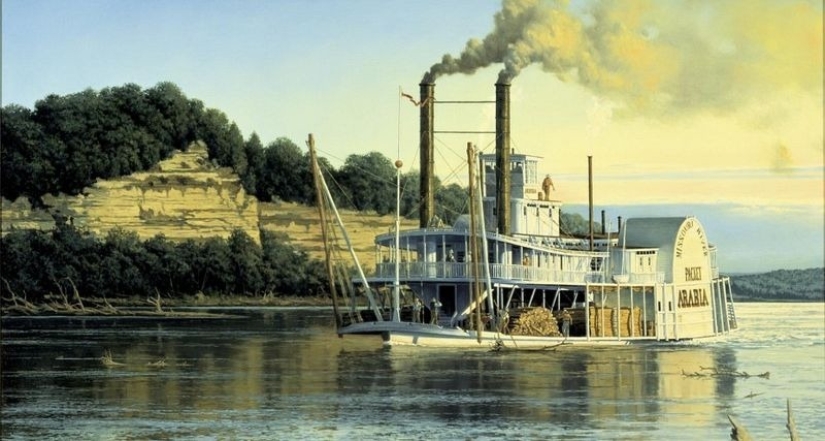
The mid-19th century was a period of economic recovery and development for the United States. Gold mines were opened in different parts of the country, railways and factories were built, cities were founded. At that time, the main method of delivering goods from one part of the country to another was large waterways, such as the Mississippi and Missouri rivers.
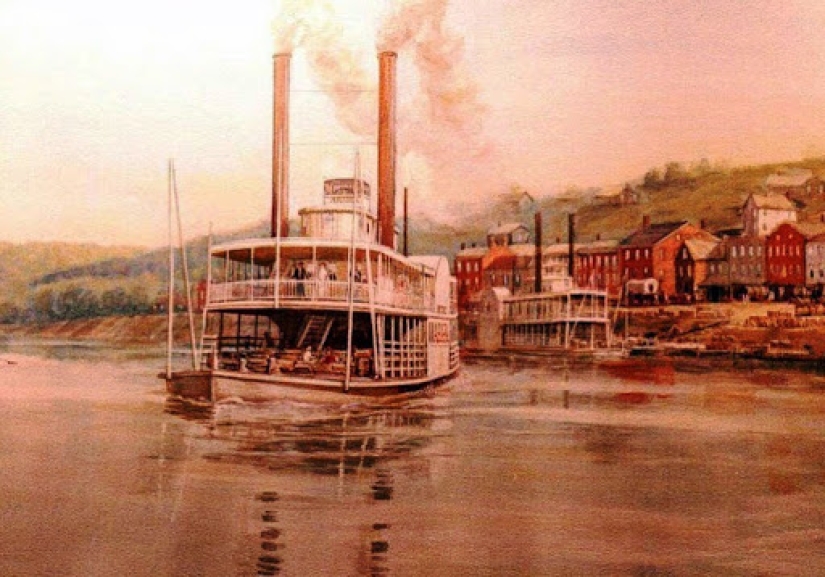
In September 1956, the steamship "Arabia" set off from the river port of Kansas up the Missouri River with passengers and 200 tons of construction materials. The cargo was intended for 16 new cities under construction in the steppe. The ship "Arabia" was only three years old and its technical condition was excellent.
The hull of the ship was made of solid oak, and it was driven by two powerful steam engines with large paddle wheels. Despite its impressive size, the steamer was one of the fastest and most maneuverable on the Missouri. However, like the famous "Titanic", it was not insured against an absurd accident.
Navigation on the Missouri was a very difficult task and required maximum attention and professionalism from the captain and crew. The river was full of treacherous shoals, which were constantly moving due to the fast current. In addition, the mighty river carried away a huge amount of large debris, from which wooden steamers had to dodge.
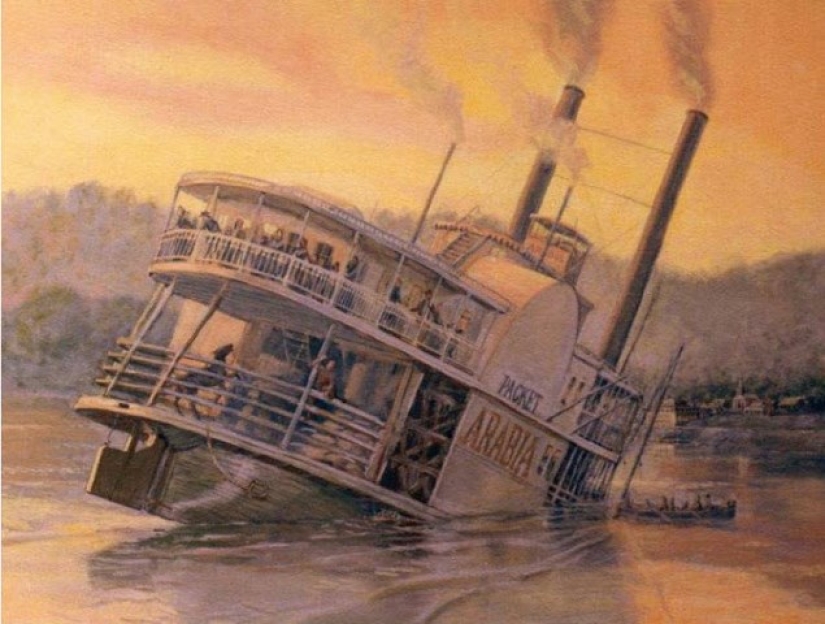
But that day the "Arabia" sailed to the west and in the afternoon the sun shone directly into the helmsman's eyes. Probably because of this, he did not see the massive trunk of a walnut tree floating with the current towards the steamer. The impact was so strong that the log broke through the side of the "Arabia" in its front part and was firmly stuck in the hole.
The hole was of impressive size, and the log did not allow the crew to take emergency measures and put a plaster. Therefore, the hull of the ship began to fill with water quickly and the "Arabia" gave a strong roll. Fortunately, the sinking of the steamer was not rapid, so the passengers and crew members managed to get into the boats and safely reach the shore.
During the shipwreck, there was only one victim – a mule tied to a sawmill equipment on the cargo deck drowned. The depth of the river at the crash site was so insignificant that the "Arabia" did not disappear completely under water and its upper deck and chimneys remained on the surface.
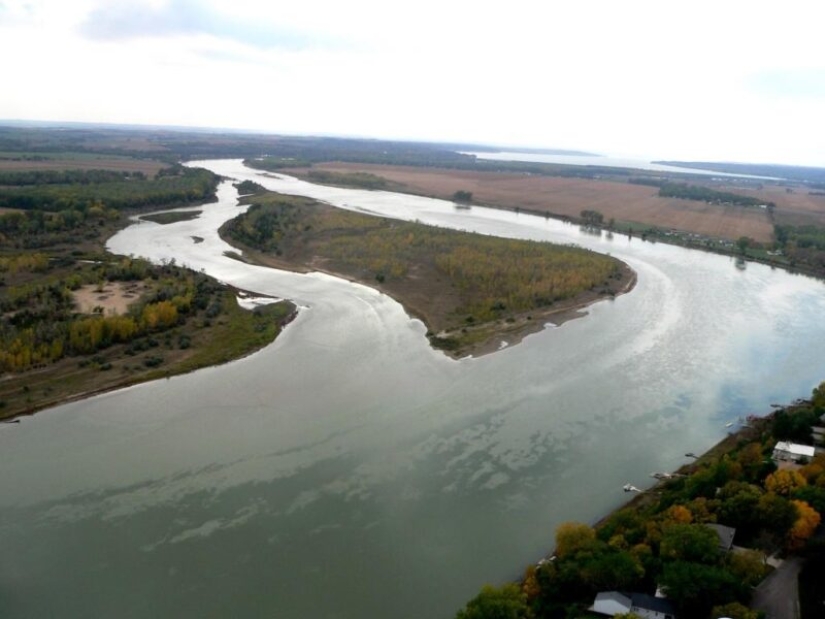
But, despite this, the steamer was doomed – the Missouri current destroyed all the deck superstructures in a few days, and the muddy bottom sucked in the hull of the Arabia. A week later, there was nothing to remind that a large river steamer with cargo had recently sunk on the shallows.
For more than a hundred years, many things have changed, including the course of the Missouri River. What was once the middle of the river turned out to be far from the shore and a corn field appeared on the site of the wreck of the Arabia. But they did not forget about the steamer – it was well known that they could not save anything from the cargo from the ship and now all these treasures are hidden somewhere under the field.
No, the treasure hunters were not interested in bricks, beams and a sawmill – there were rumors that there was something more interesting in the holds of the Arabia. The locals stubbornly believed that the steamer was carrying a large cargo of whiskey for the settlers and a whole box of gold. Attempts to find the crash site were made repeatedly, but ended in nothing until David took up the case Hawley.
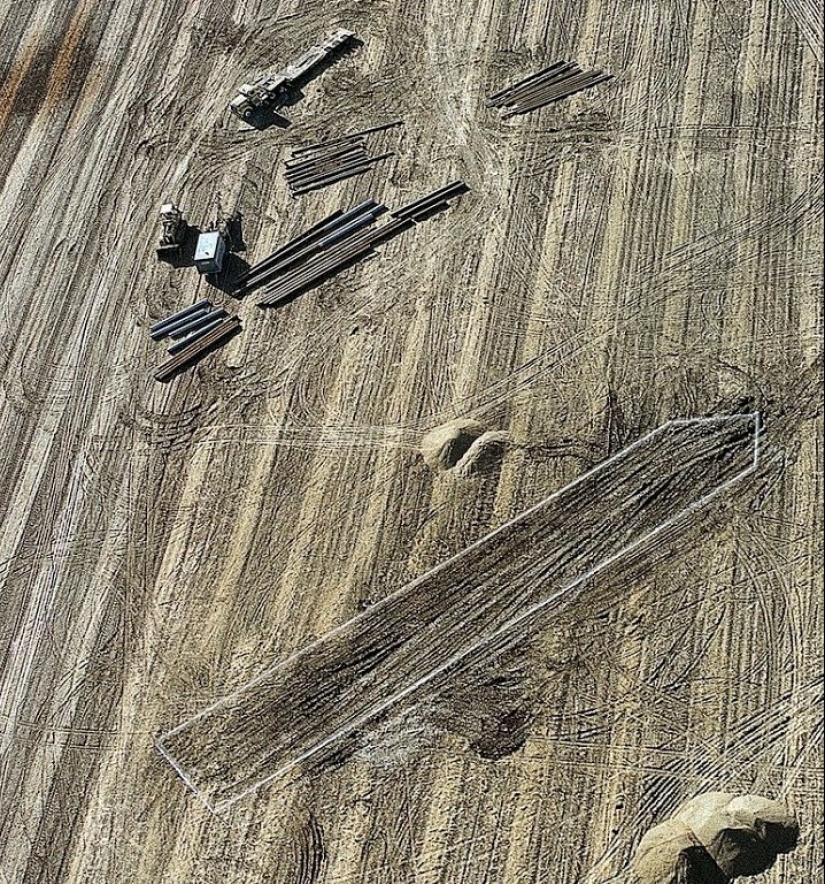
An experienced treasure hunter attracted a serious scientific and technical arsenal to the search for "Arabia". He used not only sensitive metal detectors, but also geological maps, soil erosion schemes, clippings from old newspapers and even aerial photography materials. The search was not easy, but it yielded results – in 1987, David announced that "Arabia" had been found.
What was left of the steamer was located deep underground a kilometer from the Missouri coast and large-scale earthworks were required to extract the wreckage to the surface. They dug out "Arabia" in the middle of a corn field for a whole year, removing the soil and old river silt layer by layer. Part of the work was done by excavators, part by hydraulic monitors that washed out the silt with a stream of water, and part by hand.
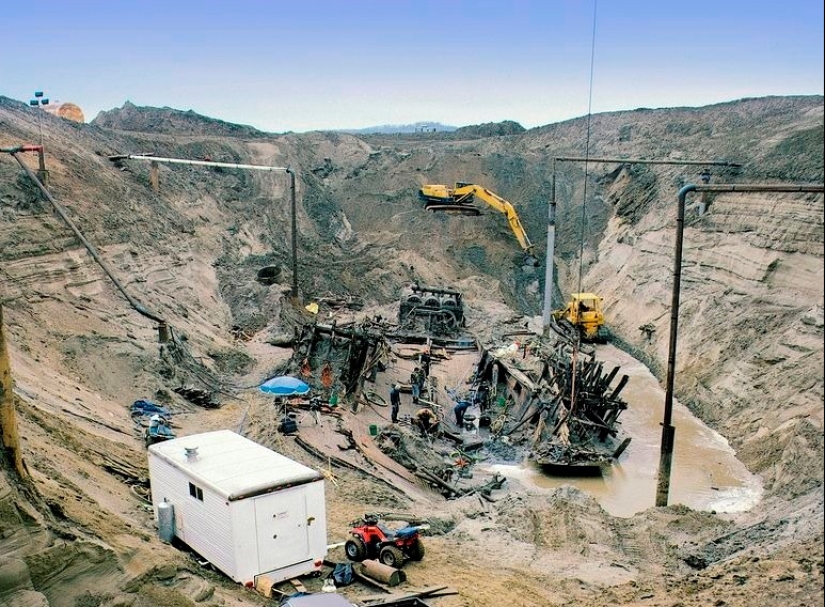
When the hull of the steamer appeared on the surface, the efforts of the Hawley team were finally rewarded. Things of a bygone era began to appear one after another from the earth, and in perfect condition. Dishes, crates of food, barrels of castor oil and nutmeg, shoes, clothing, weapons and even such small things as sewing games, glasses, earrings and cigarette cases were found on the "Arabia".
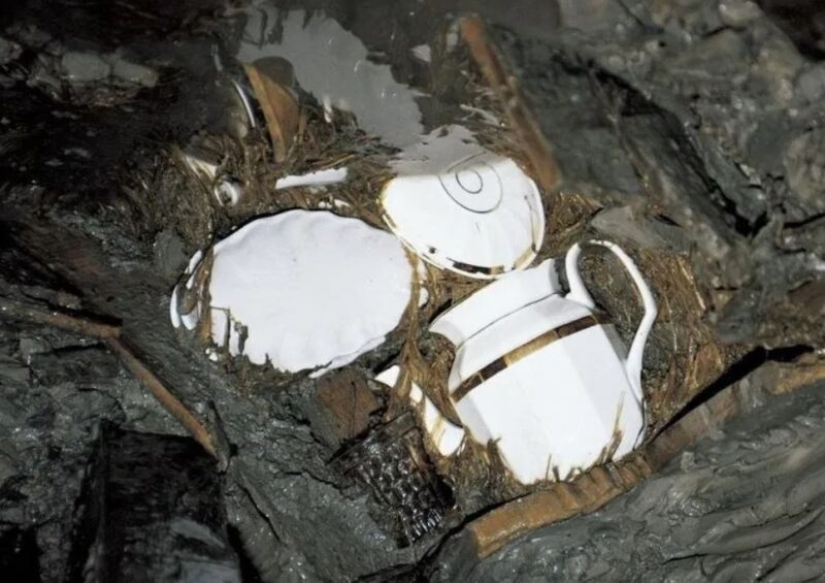
Everything that was found with such difficulty under a corn field can now be seen at the Steamship Arabia Museum in Kansas City, USA. In addition to numerous small artifacts, the museum demonstrates the reconstruction of the deck of a 52-meter-long steamer, steam boilers, paddle wheels and anchors of the Arabia. The skeleton of a mule, the only victim of a shipwreck, is also presented here.
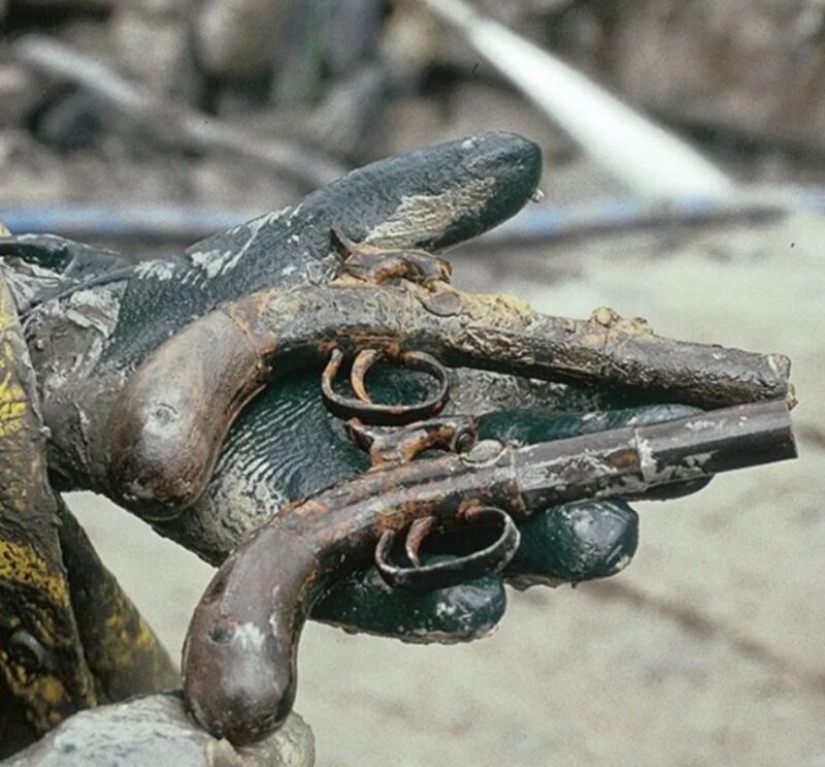
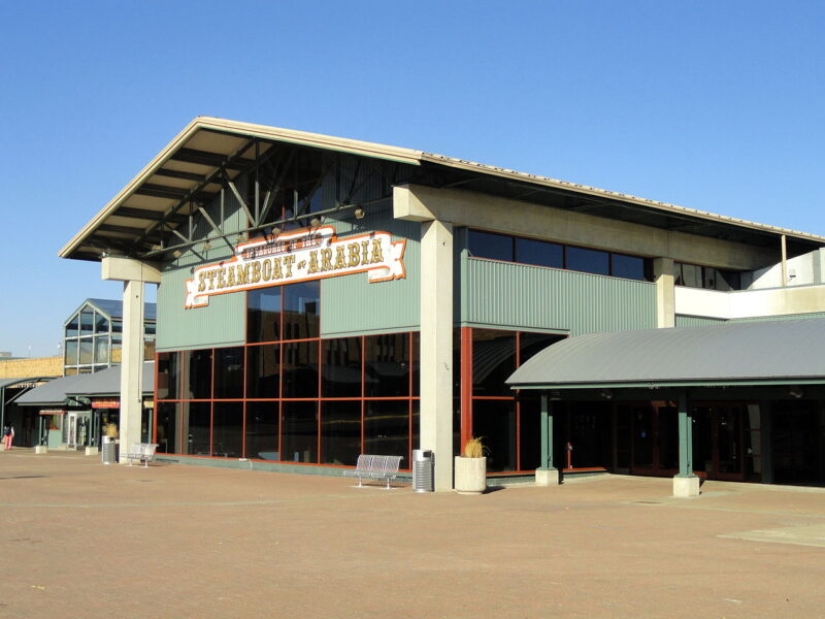

Keywords: USA | Disasters | Ship | Treasure | Missouri | Kansas | Search
Post News ArticleRecent articles

Sometimes the most unexpected and crazy ideas become the best and universal solution in everyday chores. Every day people come up ...

Prohibition started in 1920, when the so-called the Volstead act came into force. The 18th amendment to the U.S. Constitution ...
Related articles

Artist Bovey Lee (Bovey Lee) continues the tradition of Chinese art "of Czarci" — cut patterns out of paper. Bovey Lee was born ...

Bikers since the mid-twentieth century terrified the inhabitants of "one-storied America". The roar of the engines meant one thing ...

Can you tell what snakes, ninja shurikens, eels and grenades have in common? It's simple — all this is periodically seized ...

Harvard Professor Dr. Andrew Weil has developed a unique technique of relaxation, thanks to which even the most restless people ...